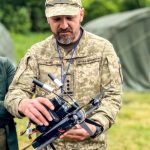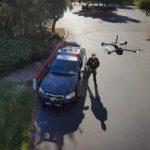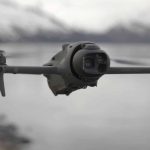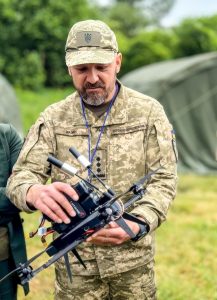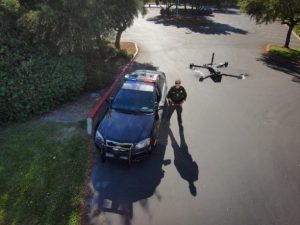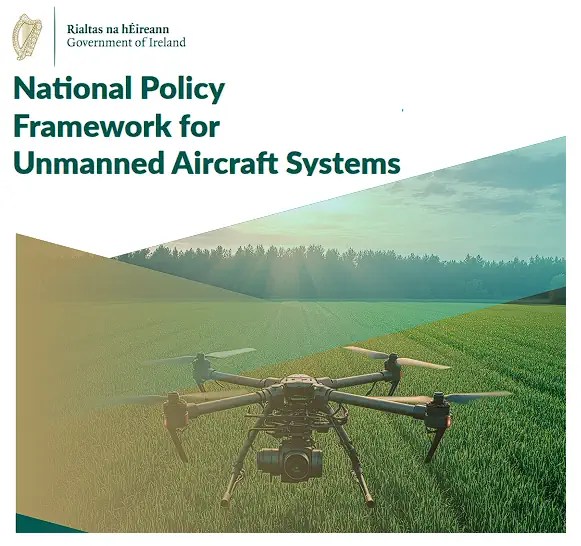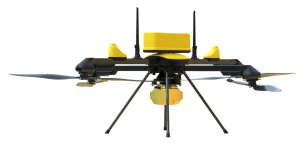Ireland’s National Policy Framework for Unmanned Aircraft Systems (UAS): A Glimpse into the Drone Horizon
Published August 2025
Drones, formally known as Unmanned Aircraft Systems (UAS), are transforming the ways in which Ireland connects, operates, and innovates. A new and comprehensive National Policy Framework for UAS outlines a ten-year path toward responsible drone development, upholding the highest industry standards, and balancing innovation, safety, and public trust.
This guide is tailored for drone enthusiasts, businesses, city planners, and anyone curious about the impact of drones in Ireland’s future. Here, you’ll find key actions, practical contexts, and expert insights shaping Ireland’s drone-powered evolution.
1. Why Ireland Needs a National Drone Policy
The presence of drones is growing exponentially: Irish agriculture now utilizes them for livestock surveillance, emergency services depend on aerial views, e-commerce hints at airborne deliveries, and creatives capture Ireland’s stunning landscapes like never before. However, great technological advances bring significant responsibilities.
- Economic potential: Drones open doors to novel sectors, including delivery services, healthcare technology, tourism, and rejuvenation of rural areas.
- Complex questions arise: Who oversees the airspace? How do we ensure security, safety, and privacy for everyone? How can Ireland remain advanced without bypassing its communities?
The necessity of clear guidelines and a long-term vision in the fast-evolving UAS landscape led to the birth of the National Policy Framework for Unmanned Aircraft Systems, published on August 20, 2025, following extensive consultations with the public and experts.
2. The Three Pillars: What the Framework Covers
The policy is built on three strategic pillars:
- Airspace and Planning
- Integrating drones into shared airspace—alongside helicopters, commercial airlines, and future air taxis—is intricate. The framework initiates a National Working Group on UAS Geographical Zones to specify drone operational limits.
- A National U-space Steering Group aims to implement ‘U-space’—a cutting-edge digital air traffic management system for drones.
- Local authorities will gain training to incorporate drone planning into regional and community growth strategies, fostering community involvement in drone implementation.
- Compliance and Enforcement
- Introducing on-the-spot fines for minor drone law violations prevents cumbersome legal processes.
- Collaborative enforcement: Joint efforts by the Irish Aviation Authority, police (An Garda Síochána), and the Data Protection Commission enforce aviation and privacy laws during drone-related incidents.
- Public reporting on drone misuse and regular enforcement updates build societal trust.
- Enterprise and Innovation
- Indicating a commitment to make Ireland a leading hub for drone applications and R&D, a UAS Enterprise and Innovation Leadership Group will facilitate partnerships among startups, research facilities, and established businesses.
- Designated test sites and specialized airspace ensure secure, controlled environments for drone experimentation.
- A national digital platform will act as an information hub, connecting businesses, and showcasing UAS sector opportunities.
3. How Ireland Balances Innovation and Public Interest
The backbone of Ireland’s drone policy lies in safeguarding safety, security, privacy, and the environment. The framework fosters advancement while ensuring responsible oversight:
- Privacy: The Data Protection Commission plays a crucial role in overseeing UAS regulations, demanding rigorous privacy standards for every new drone initiative.
- Impact assessments: Large-scale drone operations require evaluations of local noise and wildlife disruptions.
- Community engagement: Grounded in public consultation, the framework reflects diverse perspectives—from rural landowners to city dwellers and drone enthusiasts.
4. Governance: Who’s in Charge?
A National UAS Policy Framework Monitoring Group managed by the Department of Transport meets biannually, involving officials from the Department, the Irish Aviation Authority, and Local Government Management Agency. Each framework pillar updates progress based on real-world feedback.
Recognizing the need for adaptability, the framework will evolve with shifting EU and international drone standards, demonstrating an Irish blend of tradition and flexibility.
5. Drones, the Law, and You: What Operators Need to Know
For consumers, small businesses, or tourists, the primary concern is: How will existing and new regulations impact me?
Registration & Training:
- Drone operators flying devices over 250g or featuring a camera must register with the Irish Aviation Authority (IAA), regardless of citizenship.
- Operators require an EU Drone Certificate: an ‘A1-A3 Certificate’ for most drones, or an ‘A2 Certificate’ for heavier or proximity-based drones.
- Online training and testing are available on the IAA’s MySRS portal, and registration remains valid for two years.
Key Flying Regulations:
- Maximum altitude: 120 meters.
- Maintain visual line of sight at all times.
- Avoid crowds, no-fly zones, and respect privacy.
- Tourists must also register before flying in Ireland.
- Additional authorizations are needed for commercial, nocturnal, or automated flights.
Immediate fines for violations aim to deter reckless flying without overburdening the legal system.
6. U-space: The Smart Airspace of the Future
The framework aligns with the new EU U-space directives: digital corridors, automated clearances, and sync with air traffic control. Though full implementation awaits EU-wide until 2030, Dublin City Council is pushing for a working model in as little as one to three years.
U-space features:
- Automated flight approvals and airspace deconfliction.
- Dynamic no-fly zones for emergencies (e.g., fires, VIP movements).
- Real-time tracking, ensuring authoritative oversight and privacy protection.
Such a system can make routine drone deliveries and automated inspections feasible.
7. Enterprise, Startups & the Irish Drone Boom
Ireland aspires to become the “drone startup capital” of Europe. Key initiatives include:
- Test corridors within Irish airspace already support drone medical delivery experiments, forest conservation efforts, and agri-tech trials.
- Collaboration: The new Leadership Group brings together research institutions, aviation companies, and venture-backed startups.
- Funding & partnerships: Access to EU innovation funds and private investment forms a vital component.
Case Study: In 2024, StormField, an agri-drone startup from Cork, executed over 1,000 crop inspections with UAS imaging, significantly cutting pesticide use by 30% while boosting yields. Such breakthroughs are feasible due to well-defined, risk-managed regulations.
8. Public Confidence: Building a Drone-Ready Society
Transparent enforcement offers regular public updates on fines and investigations, fostering trust. Jargon-free resources provided by the IAA feature user-friendly guides and a helpline.
Public education: From school drone clubs to senior centers, Ireland aims to keep everyone informed about UAS. Continuous public engagement remains vital, ensuring regulations mirror lived experiences.
9. Looking Ahead: What’s Next for Drones in Ireland?
The framework acknowledges: “We cannot predict where drones will lead us, but we will collaborate on the journey.” Anticipate:
- Expansion in commercial drone deliveries—from medical supplies to agricultural tools.
- More ‘smart city’ drones monitoring infrastructure, mapping flood regions, and assisting emergency services.
- Exchanging Irish UAS expertise across Europe and other regions.
- Robust, adaptive policies—welcoming innovation and safeguarding Irish citizens and skies.
10. Expert Insights: Human Stories and the Future in the Skies
“Drones resemble bicycles in the 19th century—first a curiosity, then an economic powerhouse, and eventually a daily life element.” — Dr. M. O’Donnell, UAS researcher
Our Team’s Mission:
We specialize in assisting businesses, farmers, emergency personnel, and communities to integrate drones effectively and safely. Leveraging engineering expertise, legal knowledge, and a genuine passion for beneficial tech, we have guided everyone from Galway farmers to Dublin filmmakers. We’re focused on trust, compliance, and achieving results.
Looking to harness the opportunities drones can offer your business? Our network provides human insight for smarter skies.
Final word:
Ireland’s policy framework extends beyond regulation—it’s an invitation to innovators, creative minds, enterprises, and citizens alike. Who knows—perhaps a decade from now, your breakfast scone will arrive by drone, your roof inspected by a robot, and you’ll reminisce, “I remember Ireland’s drone evolution… and we succeeded.”
(For authoritative resources, consult Ireland’s Department of Transport and the Irish Aviation Authority for continuous updates, guidelines, and support tools.)
(This guide synthesizes recent governmental releases, expert analyses, and frontline practices to demystify Ireland’s forward-thinking drone approach. Ready to take to the skies? Let’s craft the future together!)
